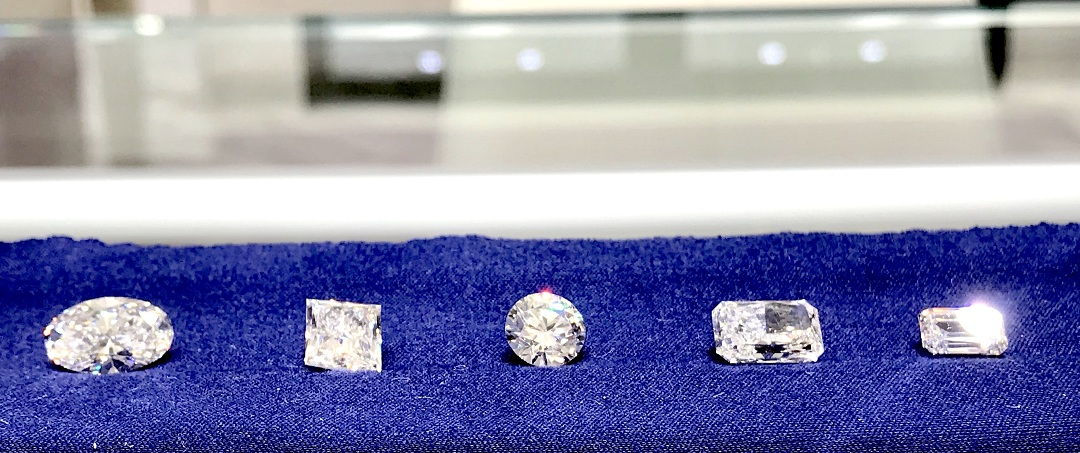If you want to buy the prettiest and biggest Diamond that will fit
your budget, go for Lab Diamonds, always!
Explanation:
Chemically, structurally, and most importantly,
aesthetically, lab Diamonds are exactly like natural
Diamonds. They are Diamonds, period.
However, they aren't mined nor do they take millions of
years to form, and so you can get a significantly bigger
and higher quality lab-grown Diamond for the same budget as
opposed to a natural Diamond.
While every Diamond is
unique, insist on the following qualities in any Diamond you buy
(Natural or Lab-Grown), and you can be reasonably confident you've
purchased a gorgeous Diamond:
- Ensure the Color is D, E or F.
- Clarity of the Diamond should be VS1 or better
- Cut, Symmetry and Polish should be Excellent
-
Fluorescence: All lab Diamonds are free of fluorescence, but if
you're going for Natural Diamonds, insist on Fluorescence: None
or Faint
-
Insist on GIA certification for Natural Diamonds.
Insist on IGI or GIA certification for lab Diamonds.
This one's tricky, but if you're concerned about resale value, or
view Diamonds as an investment: then follow these two rules of
thumb and you'll be fine:
1. If your budget is below $15k, go for Lab Diamonds, but
spend 1/6th of your budget, at most!
Explanation:
The main concern with lab Diamonds that some
people have is that lab-grown Diamonds have no resale value. (True
in general, but I offer 100% trade-in value on upgrades!)
This leads people to conclude that, from an investment
point of view, one must always buy Natural Diamonds. However, this
broad generalization is wrong!
Here's why:
Suppose you buy a natural Diamond for $5000. God forbid, but
say you're in urgent need for money, and you go out to sell it:
you'll likely not get more than $1500 for it! So you've
lost $3500 of your hard earned money. Not a great
investment.
On the other hand, that
same Diamond would've cost you $900 or less, if it were
lab-grown. No doubt it can't be resold, but this means you've
“lost” only $900. You could've put the remaining $4.1k to some
other use immediately.
In other words, for the same
Diamond, if you buy natural you lose $3500, and if you buy
lab-grown, you “lose” $900.
From a financial point of view,
the choice is simple.
The reason Natural Diamonds lose
value is because in the 0-15k range, Natural Diamonds have a lot
of technical flaws, which the big jewelry brands won't tell you
about when you're buying, but these flaws will be pointed out to
you in excruciating detail when you try to sell your
natural Diamond anywhere.
And so, as a rule of thumb,
for budgets up to $15k, you're better off getting lab Diamonds
(but spending only 1/6th of your budget!)
For Example:
Say your budget for an engagement ring Diamond is $8000.
Instead of spending $8000 on a natural Diamond (whose
resale value will likely be $6000 or worse, meaning you've lost at
least $2000 in the long run), buy a lab-grown Diamond of the same
high quality and size, for 1/6th of $8000, i.e. for around $1300,
and put the remaining $6700 to use in other financial endeavors
immediately!
Effectively, you've saved a minimum of
$700 dollars in the long run, and freed up $6700 immediately.
2. If your budget is above $15k, go for Natural Diamonds
but absolutely insist on the following specs:
- Color: D or E
- Clarity: IF (internally flawless) or FL (flawless)
- Polish: Excellent | Symmetry: Excellent
- Cut: Excellent
- Fluorescence: None
- Certified by: GIA
-
Carat: Minimum 1 Carat (Resale value of Natural Diamonds smaller
than 1 Carat plummets)
There are subtler details like degree of the Diamond's table and
pavilion, thickness of the Diamond girdle, etc. which are trickier
to look out for, and can significantly impact a natural
Diamond's resale price.
However, if you follow the above guidelines, you can still be
reasonably certain you've purchased a good natural Diamond, which
will either grow in value with time, or at least retain its value!

